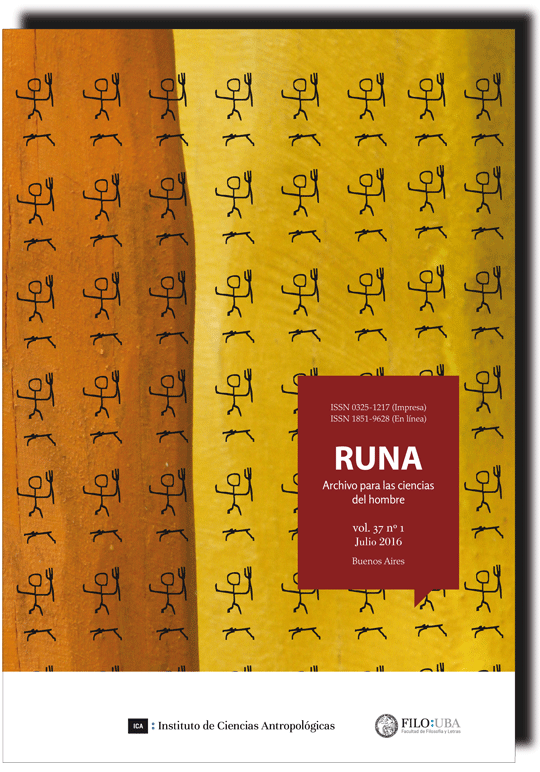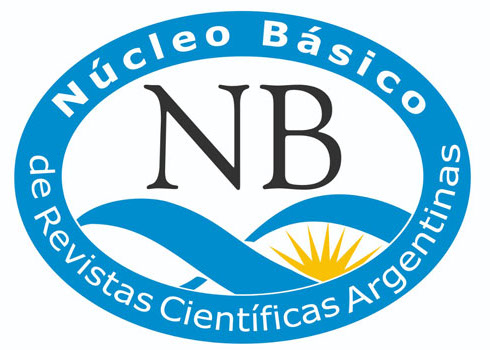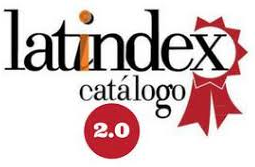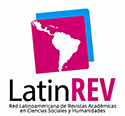Cash Transfer Policies. Exporting Development Expectancies
Abstract
In this paper, I reconstruct the anticipatory contexts in which cash transfer programs were implemented in Mexico. In 1994, Procampo was implemented with the aim of supporting structural adjustments and for making Mexican agricultural sector viable in foreseen North American Free Trade Agreement (NAFTA) markets. In 1997 Progresa cash transfer program began to condition the behavior of mothers of poor children, while it cast a long term future in which its beneficiaries would accumulate enough human capital to enter into formal labor markets. Given that these objectives could not be calculated neither empirically nor rationally a priori, I use the concept of "imaginary future" for their analysis. Leaving aside in this article the various appropriations of these moneys, I conclude that cash transfer programs that follow the Mexican model could be promoting the same fictional expectations of inclusion.Downloads
References
AGUDO SANCHÍZ, Alejandro. 2011. Mejoras Privadas, Beneficios Colectivos: La Producción y Subversión de Regímenes Globales de Política Social en Chiapas. En (Trans) Formaciones del Estado en los Márgenes de Latinoamérica. Imaginarios Alternativos, Aparatos Inacabados y Espacios Transnacionales. A. Agudo Sanchíz y M. Estrada Saavedra, (Ed.) México: El Colegio de México-Universidad Iberoamericana.
AGUDO SANCHÍZ, Alejandro. 2012. Consultorías (Pos) Modernas. La Mímica del Positivismo y la Construcción del Conocimiento en la Evaluación de Programas Sociales. Estudios Sociológicos, XXX: 88.
ASERCA. 2012. Programa de Coberturas. En: www.aserca.gob.mx/sicsa/coberturas/sublistacoberturas1.asp. Accedido el 15 de Enero de 2013.
AUTOR. 2015. “Supporting a Counterfactual Futurity: Cash Transfers and the Interface between Multilateral Banks, the Mexican State, and its People”. The Journal of Latin American and Caribbean Anthropology.
AUTOR. 2013. Promissory Prestations: A Yucatec Village between Ritual Exchange and Developmet Cash Transfer. PhD unpublished dissertation. Johns Hopkins University.
AUTOR. 2011. Promesas rituales y compromisos de libre mercado. Regímenes de futuro en un pueblo de Yucatán. Cuicuilco 18(51).
BID. 2012. Accessed on January 12, 2012. www.iadb.org/en/about-us/departments/biographies,1347.html.
CEPAL. 2014. http://interwp.cepal.org/sisgen/ConsultaIntegrada.asp?idIndicador=2268&idioma=e
Accedido el 3 de Agosto de 2015.
CONEVAL. 2015. Anexo Estadístico 2010-2014. En: www.coneval.gob.mx/Medicion/MP/Paginas/AE_Pobreza-2014.aspx. Accedido el 1 de Agosto de 2015.
DE JANVRY, A. y SADOULET, E. 2004. Conditional Cash Transfer Programs: Are They Really Magic Bullets? Department of Agricultural and Resource Economics: University of California at Berkeley
DE JANVRY, A.; SADOULET, E; SOLOMON, P y VAKIS, R. 2006. Uninsured Risk and Asset Protection: Can Conditional Cash Transfer Programs Serve as Safety Nets? Social Protection. The World Bank. Discussion Paper NO. 0604. Washington DC: The World Bank.
DUGGER, Celia. 2004 . To Help Poor Be Pupils, Not Wage Earners, Brazil Pays Parents. New York Times. www.nytimes.com/2004/01/04/world/to-help-poor-be-pupils-not-wage-earner-brazil-pays-parents.html. Published January 03, 2004, accecced May 23, 2013.
FERGUSON, James. 2015. Give a Man a Fish: Reflections on the New Politics of Distribution
Durham, Duke University Press.
FISZBEIN, Ariel and Schady, Norbert. 2009. Conditional Cash Transfers. Reducing Present and Future Poverty. The International Bank for Reconstruction and Development / The World Bank. A World Bank Policy Research Project.
FOX, Jonathan y Libby HAIGHT (2007). ‘El acceso público a las evaluaciones externas de los programas sociales del gobierno’, en Jonathan Fox, Libby Haight, Helena Hofbauer y Tania Sánchez (coords.), El derecho a saber: Balance y perspectivas cívicas, México: Fundar/Woodrow Wilson Center, www.fundar.org.mx
BARRIENTOS, A., HANLON, J. and HULME, D. (2010). Just Give Money to the Poor: The Development Revolution from the Global South. Sterling VA: Kumarian Press.
KOSELLECK, Reinhart. 2004 [1979] Futures Past: On the Semantics of Historical Time. New York: Columbia
University Press.
LAVINAS, Lena. 2013. 21 ST Century Welfare. New Left Review. Nov- Dec.: 5-40.
LAGARDE, Mylene; Andy HAINES and Natasha PALMER. 2008. Creating Incentives to Induce Behavioural Change and Improve Health: Success and Limitations of Conditional Cash Transfer Programmes, Global Forum Update on Research for Health. 5: 107-111.
LEVY, Santiago. 2008. Good Intentions, Bad Outcomes: Social Policy, Informality, and Economic Growth in Mexico. Washington DC: Brookings Institution Press.
NUSSBAUM, Martha. 2000. Women and Human Development: The Capabilities Approach. Cambridge: Cambridge University Press.
OPORTUNIDADES. 2010. Reglas de Operación del Programa de Desarrollo Humano Oportunidades para el ejercicio fiscal 2012. Diario Oficial (Tercera Sección). Viernes 30 de Diciembre de 2011. México: Diario Oficial de la Unión.
ORENSTEIN, Mitchell. 2008. Privatizing Pensions: The Transnational Campaign for Social Security Reform. Princeton: Princeton University Press.
PROCAMPO. 1994. Decreto de Creación del Procampo. Decreto que Regula el Programa de Apoyos Directos al Campo Denominado Procampo. Publicado en el Diario Oficial de la Federación Lunes 25 de Julio de 1994. México DF: Diario Oficial de la Federación.
PROCAMPO. ND. Vamos al Grano para Progresar. México: Secretaría de Agricultura y recursos Hidráulicos.
SADOULET, E., DE JAVRY, A. y DAVIS, B. 2001. Cash Transfers Programs with Income Multipliers: PROCAMPO in Mexico. World Development. 29 (3) March.
SALINAS DE GORTARI, Carlos. 1978 Public Investment, Political Participation and System Support: Study of Three Rural Communities. Ph.D. dissertation. Harvard University.
Producción y Participación Política en el Campo. México: Fondo de Cultura Económica.
SCHWEGLER, Tara A. 2008. Take it From the Top (Down)? Rethinking Neoliberalism and Political Hierarchy in Mexico. American Ethnologist. 35(4): 682-700.
SCHUMPETER, Joseph A. 2008 [1911]. The Theory of Economic Development: An Inquiry int Profits, Capital, Credit, Interest and the Business Cycle. New Brunswick and London: Transaction Publishers.
SEN, Amartya K. 1999. Development as Freedom, New York: Knopf.
SKOUFIAS, Emmanuel y MCCLAFFERTY, Bonnie. 2001. Is progresa working? Summary of the results of an evaluation by IFPRI. FCND discussion paper no. 118. Washington DC: Food Consumption and Nutrition Division. International Food Policy Research Institute.
STAMPINI Marco y Leopoldo TORNAROLLI. 2013. The growth of conditional cash transfers in Latin America and the Caribbean: did they go too far? No. No. IDB-PB-185
SUGIYAMA, Natasha Borges. 2011. “The Diffusion of Conditional Cash Transfer Programs in the Americas”. Global Social Policy Vol. 11, no. 2/3 (December): 250-278.
TEICHMAN, Judith. 2004. The World Bank and Policy Reform in Mexico and Argentina. Latina American Politics and Society. 46(1): 39-74.
ZEDILLO, Ernesto. 1997. Tercer Informe de Gobierno: Anexo Gráfico y Estadístico: México: Presidencia de la República.

Runa, archivos para las ciencias is a publication of the Instituto de Ciencias Antropológicas, Facultad de Filosofía y Letras, Universidad de Buenos Aires and is distributed under a Creative Commons Attribution 4.0 International License.
Runa maintains its commitment to the policies of Open Access to scientific information, considering that both scientific publications and publicly funded research should circulate on the Internet freely, free of charge and without restrictions.
The contents and opinions expressed in published articles are the sole responsibility of their authors.



















